Tony
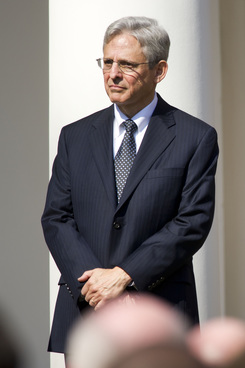
April 15, 2016 | Law.com
ABA's Evaluation of Garland Continues, Despite GOP BlockadeThe American Bar Association's formal evaluation of Judge Merrick Garland's qualifications for a seat on the U.S. Supreme Court is underway and could be completed soon, even though the Senate Judiciary Committee has no plans to hold a hearing on his nomination.
By Tony Mauro
14 minute read
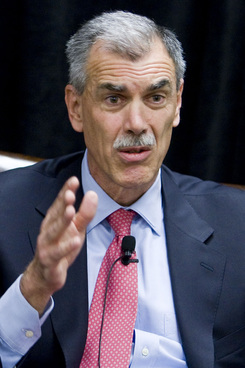
April 13, 2016 | Supreme Court Brief
April Supreme Court Arguments: Last But Not LeastThe final argument cycle of the current U.S. Supreme Court term will begin and end with a bang, with a roster of veteran advocates traipsing to the lectern in between.
By Tony Mauro
24 minute read
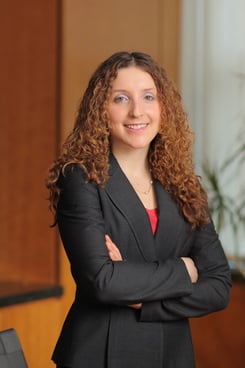
April 11, 2016 | National Law Journal
Deaf Lawyers to Join Supreme Court Bar in Mass CeremonyThirteen deaf or hard-of-hearing lawyers are set to be sworn in to the U.S. Supreme Court bar on April 19, in a first-ever mass event that symbolizes the strides lawyers with disabilities have made. The high court will provide interpreters and real-time captioning services to allow the lawyers to follow, visually and on their smartphones, what is happening during the swearing-in ritual and in the oral arguments that will follow.
By Tony Mauro
9 minute read
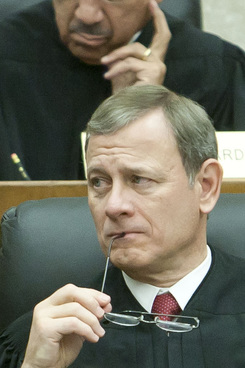
April 11, 2016 | National Law Journal
Chief Justice Roberts Sidesteps Garland Controversy in SpeechIn his first public remarks since the nomination of Merrick Garland to the U.S. Supreme Court, Chief Justice John Roberts Jr. on Monday steered clear of the ensuing controversy, but lamented the death of Justice Antonin Scalia on Feb. 13. "We are completing our term in the shadow of an unexpected loss that has touched us deeply and in many ways," Roberts told the judicial conference of the U.S. Court of Appeals for the Federal Circuit.
By Tony Mauro
4 minute read
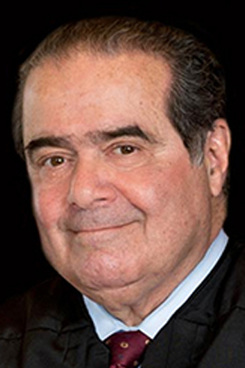
April 11, 2016 | National Law Journal
LOL Amid 'Scalia Law' RenamingThe late U.S. Supreme Court Justice Antonin Scalia might have offered his own solution to the awkward acronym problem George Mason University created by renaming its law school after him on March 31: Ban the acronym altogether.
By Tony Mauro and Karen Sloan
14 minute read
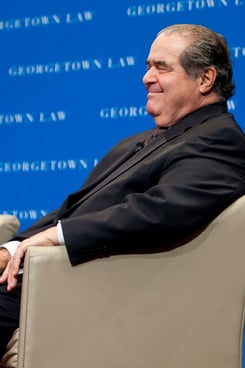
April 06, 2016 | National Law Journal
Antonin Scalia Hated Acronyms AnywayThe late U.S. Supreme Court Justice Antonin Scalia might have offered his own solution to the awkward acronym problem George Mason University created by renaming its law school after him last week: Ban the acronym altogether. Scalia hated acronyms and urged lawyers to avoid them and instead use phrases like "the commission"—or, in his instance, perhaps "the law school"—instead of pulling from the "alphabet soup" of acronyms.
By Tony Mauro
8 minute read

April 05, 2016 | New York Law Journal
Justices Unanimously Support Voting Based on Total PopulationThe U.S. Supreme Court on Monday upheld the longstanding practice of using total population—rather than eligible-voter population—in drawing legislative districts, frowning on an approach that could have recast thousands of electoral maps.
By Tony Mauro
6 minute read
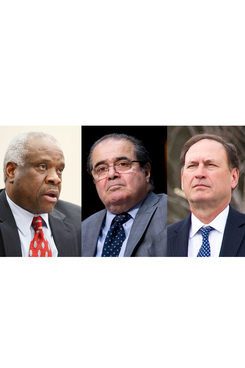
April 05, 2016 | National Law Journal
Scalia's Law Clerks Find New Homes With Alito, ThomasThe four current law clerks of the late Justice Antonin Scalia have been reassigned to work for the rest of the term for two of his conservative U.S. Supreme Court allies: Clarence Thomas and Samuel Alito Jr.
By Tony Mauro
7 minute read
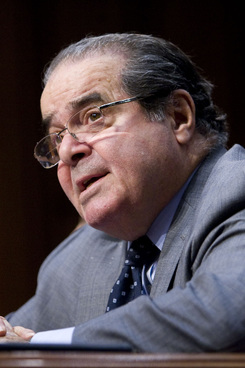
April 04, 2016 | Supreme Court Brief
Supreme Court Grants a New Case—A Rarity Since Scalia's DeathThe U.S. Supreme Court on Monday granted review in a Colorado case involving racial bias among jurors in a criminal trial—one of only three new cases the court has agreed to take up since the death of Justice Antonin Scalia Feb. 13.
By Tony Mauro
7 minute read
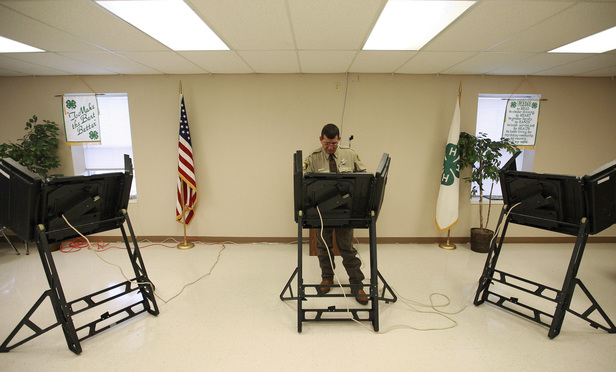
April 04, 2016 | Law.com
Supreme Court Rejects Conservatives' Electoral-District MethodThe U.S. Supreme Court on Monday upheld the long-standing practice of using total population—rather than eligible-voter population—in drawing legislative districts, frowning on an approach that could have recast thousands of electoral maps. The court did not, however, rule out the possibility that states could use the voting-population method in the future.
By Tony Mauro
8 minute read
More from ALM
- Scan In Progress: Litigators Leverage AI to Screen Prospective Jurors 1 minute read
- Legal Speak at General Counsel Conference East 2024: Match Group's Katie Dugan & Herrick's Carol Goodman 1 minute read
- Legal Speak at General Counsel Conference East 2024: Eric Wall, Executive VP, Syllo 1 minute read



